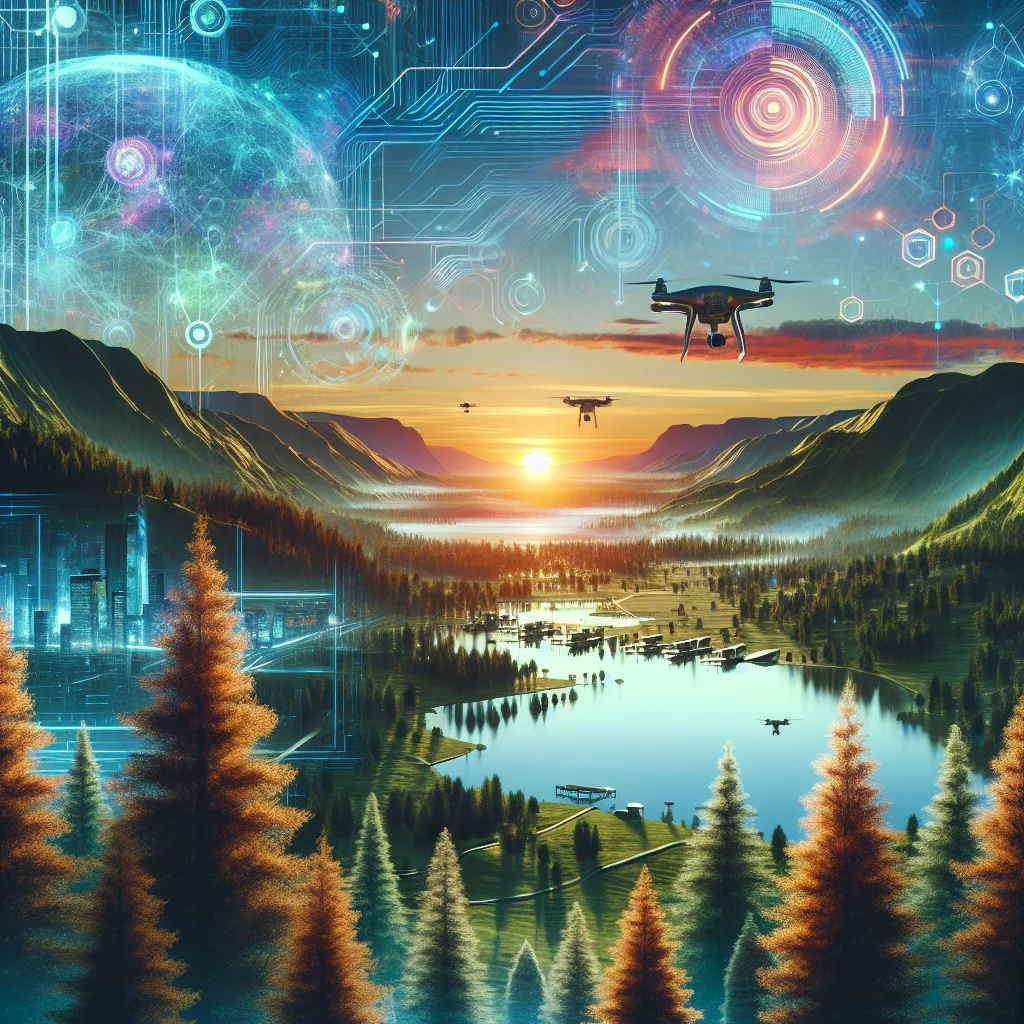Exploring the Latest AI Trends and Applications in 2025
March 19, 2025

Artificial Intelligence (AI) has become an integral part of our daily lives, revolutionizing how we work, communicate, and interact with technology. As we step into 2025, the continuous evolution of AI technologies signals not only enhanced capabilities but also significant implications across various sectors. In this article, we will explore the latest trends in AI, examine practical applications, and highlight expert opinions to anticipate the future of this dynamic field.
What Are the Latest AI Trends in 2025?
The landscape of AI is constantly changing, with new trends shaping its trajectory. One of the most substantial trends this year is the increased adoption of generative AI. Technologies such as GPT-3 and DALL-E are paving the way for AI systems that can produce creative content—from text to images—highlighting the versatility and expansive potential of AI in creative industries. Another significant trend is the growing emphasis on explainable AI. Organizations are prioritizing transparency to build trust with users, necessitating AI models that can provide understandable insights into their decision-making processes.
Moreover, AI democratization continues to be a hot topic. With advancements in user-friendly platforms and open-source frameworks, businesses of all sizes can leverage AI without extensive technical expertise. These trends signal a more inclusive approach to AI, enabling wider adoption and fostering innovation across diverse sectors.
How Is AI Being Applied Across Different Industries?
The practical applications of AI in 2025 are vast and varied, demonstrating its adaptability and effectiveness. In healthcare, AI-powered diagnostics are transforming patient care, allowing for quicker, more accurate diagnoses. Tools that analyze medical images and patient data improve outcomes while reducing operating costs for healthcare providers.
In the automotive industry, AI has propelled innovations such as autonomous vehicles. Companies like Tesla and Waymo are utilizing advanced machine learning algorithms to enhance vehicle safety systems, ultimately aiming for fully autonomous transport. Simultaneously, AI is optimizing supply chain logistics by predicting demand patterns and automating inventory management, yielding significant operational efficiencies.
Retailers too are harnessing AI analytics to tailor shopping experiences. By analyzing consumer behavior, businesses can provide personalized recommendations, optimize inventory levels, and refine marketing strategies that resonate with their customer base.
Who Are the Experts Shaping the Future of AI?
With rapid advancements in AI, numerous thought leaders are positioning themselves at the forefront of this technology. Dr. Fei-Fei Li, a pioneer in computer vision, emphasizes the importance of ethical AI practices to ensure that innovation aligns with societal values. Meanwhile, Andrew Ng advocates for accessible AI education, arguing that understanding AI fundamentals is crucial for future generations to thrive in an AI-centric world.
Tech entrepreneur Elon Musk continues to stir conversations around AI safety, highlighting the need for regulatory frameworks as technology becomes more integrated into our lives. These experts not only shape the narrative surrounding AI but also provide critical insights into its future development and implementation.
What Should Consumers Consider About AI Adoption?
As AI continues to evolve, consumers must remain informed about its benefits and challenges. While AI can enhance convenience and efficiency, it raises questions about data privacy and security. Understanding how companies utilize personal data is essential for informed decision-making. Consumers should advocate for transparency surrounding AI applications, ensuring that their rights are upheld in an increasingly automated world.
Additionally, staying updated with the latest AI trends empowers consumers to leverage these technologies responsibly. By understanding AI's capabilities, individuals can enhance their skills and navigate the digital landscape more effectively.
Interesting Facts About AI's Growth in 2025
This year marks significant milestones in AI development. For instance, the global AI market is expected to surpass $500 billion, highlighting its crucial role in economic growth. Furthermore, as more enterprises integrate AI solutions, job markets are expected to shift. While some traditional roles may diminish, new job categories are anticipated to arise, focusing on AI management and oversight.
Moreover, regions like Asia-Pacific are leading AI innovations, driven by increasing investment in research and development. Countries such as China and India are emerging as major players in the global AI ecosystem.
Conclusion
As we delve deeper into 2025, the landscape of AI continues to expand and evolve, influencing numerous sectors and shaping our future interactions with technology. From groundbreaking trends to practical applications, AI's journey is marked by innovation, ethical considerations, and consumer awareness. Staying informed not only enhances understanding but also fosters a more proactive approach to integrating AI responsibly in our lives.
Back